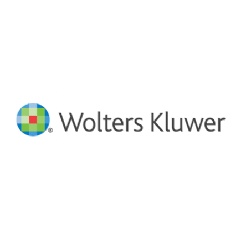Wolters Kluwer Advocates Integrated Finance, Risk & Reporting Approach, with a Central Data Warehouse, in New White Paper
Technological innovations are enabling institutions to merge their Finance, Risk and Regulatory Reporting (FRR) functions into a set of processes to help meet the twin demands of regulatory compliance and a competitive commercial landscape. That’s according to a new white paper (Integrating finance, risk and regulatory reporting through comprehensive data management) from Wolters Kluwer which illustrates how a dedicated FRR data warehouse that links risk, finance and other key functions to merge old systems with new ones, will provide banks with a competitive advantage by integrating finance, risk and regulatory reporting duties.
One of the most challenging data management burdens facing banks globally is rooted in duplication. The evolution of regulations has left banks with various bespoke databases across five core functions: credit, treasury, profitability analytics, financial reporting and regulatory reporting, with the same data appearing and processed in multiple places. This hodgepodge of bespoke databases simultaneously leads to both the duplication of data and processes, and the risk of inconsistencies.
The idea, therefore, behind the integration of finance, risk and regulatory reporting functions is that sound regulatory compliance and sound business analytics are manifestations of the same set of processes. “Satisfying the demands of supervisory authorities and maximizing profitability and competitiveness in the marketplace involve similar types of analysis, modeling and forecasting,” comments Inga Rottmann, Vice President and Head of Global Marketing at Wolters Kluwer’s Finance, Risk & reporting business and one of the authors of the paper. “Each is best achieved, therefore, through a comprehensive, collaborative organizational structure that places the key functions of finance, risk and regulatory reporting at its heart.”
What’s more, the immense demands for data, and for a technology solution to manage it effectively, have served as a catalyst for a revolutionary development in data management, particularly as regards Regulatory Technology, or RegTech. Although the definition is somewhat flexible, RegTech is effectively the application of cutting-edge hardware, software, design techniques and services to the idiosyncratic challenges related to financial reporting and compliance.
“The myriad advances that fall under the RegTech rubric, such as centralized FRR or RegTech data management and analysis, data mapping and data visualization, are helping financial institutions to finally get out in front of the stringent reporting requirements,” comments Steve Hostettler, Director of Technology at Wolters Kluwer’s Finance, Risk & Reporting business and an author of the white paper. “Centralization can now accomplish their efforts to integrate finance, risk and regulatory reporting duties more fully, easily and creatively.”
But RegTech has also proved problematic. Many RegTech solutions currently on the market can be highly specialized and localized products and services from small providers. “That encourages financial institutions to approach data management deficiencies gap by gap, project by project, perpetuating the compartmentalized, siloed thinking that was the scourge of regulators and banks alike after the global crisis,” notes Will Newcomer, Vice President of Product & Strategy for Wolters Kluwer’s Finance, Risk & Reporting business and author of the paper.
Rather, Wolters Kluwer experts argue, banks would be well advised to build a centralized, dedicated and focused FRR data warehouse that can chisel away at the barriers between functions. And this is the case even at institutions that have been slow to abandon a siloed organizational structure reinforced with legacy systems.
The path to effectively transforming data management, the white paper continues, “is to combine tried and true processes and solutions with the selective deployment of new technologies with the target to remove undesirable duplication of both rules and storage.” Having clean, integrated and standardized data in one central warehouse confers advantages such as the elimination of data duplication and the elimination of analytical process duplication. And data lineage is crucial here, the white paper adds.
“Integrating finance, risk and regulatory reporting is likely to be a long and arduous journey, but one that will help an organization get where it needs to go and become what it needs to be: a highly competitive business that has greater command of its commercial and supervisory environments and is better prepared for the future,” Rottmann adds. “Competitive pressures remain high, and regulators keep raising the bar for compliance reporting. They continually demand more data, more often, in finer detail and with greater accuracy. The industry and the technology that supports it strained until recently to keep pace, but that is changing thanks to developments in RegTech.”
About Wolters Kluwer Governance, Risk & Compliance
Wolters Kluwer Governance, Risk & Compliance (GRC) is a division of Wolters Kluwer which provides legal, finance, risk and compliance professionals and small business owners with a broad spectrum of solutions, services and expertise needed to help manage myriad governance, risk and compliance needs in dynamic markets and regulatory environments.
Wolters Kluwer N.V. (AEX: WKL) is a global leader in information services and solutions for professionals in the health, tax and accounting, risk and compliance, finance and legal sectors. Wolters Kluwer reported 2017 annual revenues of €4.4 billion. The company, headquartered in Alphen aan den Rijn, the Netherlands, serves customers in over 180 countries, maintains operations in over 40 countries and employs 19,000 people worldwide.
( Press Release Image: https://photos.webwire.com/prmedia/6/223419/223419-1.png )
WebWireID223419
This news content was configured by WebWire editorial staff. Linking is permitted.
News Release Distribution and Press Release Distribution Services Provided by WebWire.
